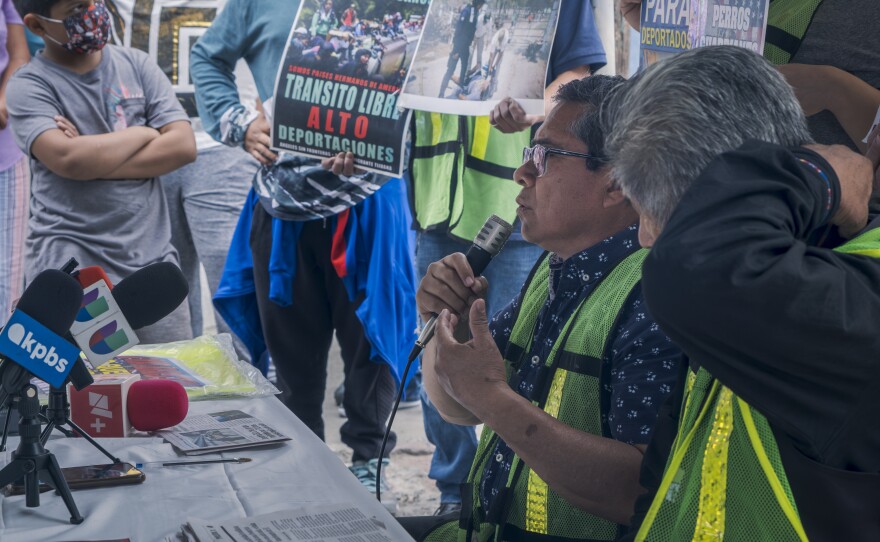Jose Maria Garcia Lara’s Tijuana migrant shelter is 2,600 miles away from the White House, where President Joe Biden signed an executive order this week that effectively closed the border to asylum seekers crossing illegally.
But the shelter, which sits just 100 yards away from the San Ysidro border crossing, will bear the brunt of the order’s impact.
That’s because Biden’s order also fast tracks deportations of the asylum seekers targeted by the order.
Tijuana’s migrant shelters now face the prospect of having to care for an increasing number of deportees while simultaneously meeting the needs of migrants already in their care. On top of that, newly arriving migrants trying to head north will have nowhere to go.
“This could create a migrant crisis,” Garcia Lara said in Spanish.
Biden’s executive order is meant to encourage migrants to use existing legal pathways to pursue asylum claims in the United States. However, Garcia Lara said, the main pathway currently available is CBP One, a mobile phone application with a wait list that averages six months.
“This will cause very serious problems if the shelters fill up,” he said.
Tijuana has approximately 30 registered migrant shelters. None of them receive direct funding from the Mexican government.
The operators of those shelters want the Mexican and United States governments to give them needed funds to help care for the vulnerable migrant population.
“We are the only ones helping them,” Garcia Lara said. “They should send resources here to Mexico so that we can continue to care for this community.”








